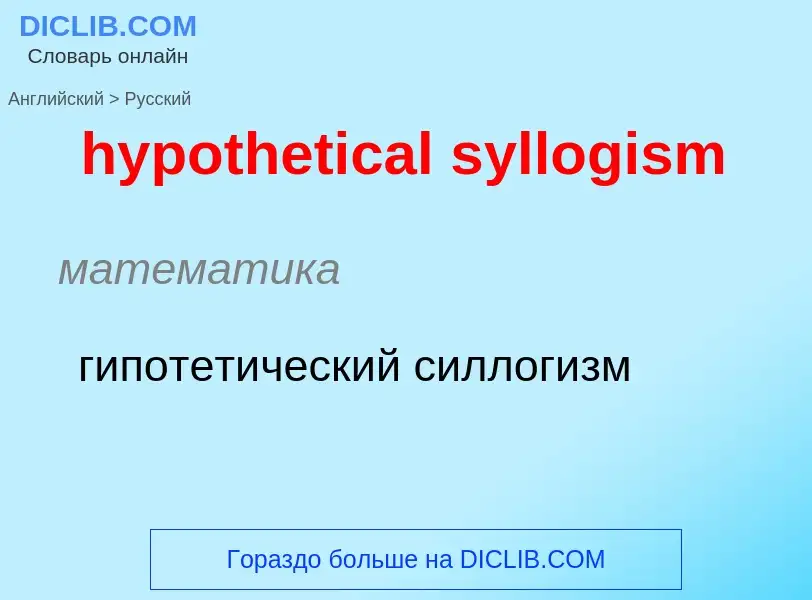Translation and analysis of words by ChatGPT artificial intelligence
On this page you can get a detailed analysis of a word or phrase, produced by the best artificial intelligence technology to date:
- how the word is used
- frequency of use
- it is used more often in oral or written speech
- word translation options
- usage examples (several phrases with translation)
- etymology
hypothetical syllogism - translation to russian
математика
гипотетический силлогизм
математика
условный силлогизм
[meidʒə'tə:m]
логика
основное условие (главной посылки)
математика
главный член (силлогизма)
Definition
Wikipedia

In classical logic, a hypothetical syllogism is a valid argument form, a syllogism with a conditional statement for one or both of its premises.
An example in English:
- If I do not wake up, then I cannot go to work.
- If I cannot go to work, then I will not get paid.
- Therefore, if I do not wake up, then I will not get paid.
The term originated with Theophrastus.
A pure hypothetical syllogism is a syllogism in which both premises and conclusions are conditionals. The antecedent of one premise must match the consequent of the other for the conditional to be valid. Consequently, conditionals contain remained antecedent as antecedent and remained consequent as consequent.
- If p, then q.
- If q, then r.
- ∴ If p, then r.
A mixed hypothetical syllogism consists of one conditional statement and one statement that expresses either affirmation or denial with either the antecedent or consequence of that conditional. Therefore, such a mixed hypothetical syllogism has four possible forms, of which two are valid, while the other two are invalid(See Table). The first way to get a valid conclusion is to affirm the antecedent. A valid hypothetical syllogism either denies the consequent (modus tollens) or affirms the antecedent (modus ponens).



